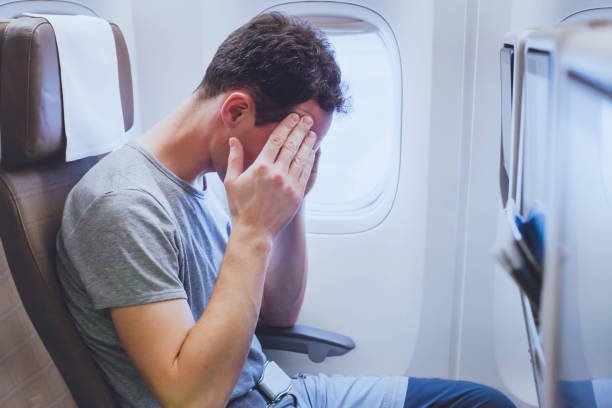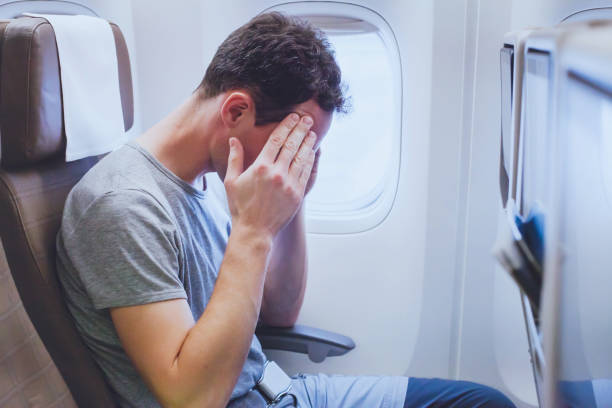Why Do I Get Sick When I Travel To Another Country?


Traveling to a new country can be exciting—exploring different cultures, trying new foods, and experiencing different climates. However, this excitement is often dampened by an unpleasant and all-too-common reality: getting sick while traveling. In fact, the U.S. Centers for Disease Control and Prevention (CDC) reports that 43%–79% of travelers to low- and middle-income countries experience some form of travel-related illness. While many of these illnesses are mild, some travelers require medical attention, and symptoms can sometimes appear long after returning home.
If you’ve ever wondered, "Why do I get sick when I travel to another country?" You're not alone. Many travelers experience mild symptoms or even flu-like symptoms due to a weakened immune system or leisure sickness. These factors can quickly turn your much-anticipated vacation into an uncomfortable experience.
In this article, we will explore why people get sick when traveling and offer practical tips to stay healthy.

Airports and train stations are known as breeding grounds for viruses and bacteria. The high concentration of people from different regions increases the risk of encountering infectious diseases that your immune system may be unprepared to fight. This exposure is one of the primary reasons travelers end up getting sick.
When you travel, your immune systems face unfamiliar bacteria and organisms that aren't present in your home environment. This sudden exposure can lead to flu-like symptoms or more severe illnesses. For example, a change in climate or exposure to different disease control practices can make you more susceptible to getting sick.
Travelers commonly suffer from viral upper respiratory infections, especially on long flights. The dry, recycled air on airplanes can dry out your mucous membranes, making you more vulnerable to illnesses like colds. Additionally, sitting close to other passengers increases your risk of catching something.
In some countries, tap water isn't safe to drink, which can lead to issues like traveler's diarrhea. Contaminated water is a common cause of illness for travelers, so drinking water from safe sources like bottled water is essential.
Crossing time zones and adjusting to new routines can disrupt your regular medicine schedule, potentially leading to health complications, especially if you depend on medication for chronic conditions.
The stress and fatigue associated with travel—long flights, jet lag, and adjusting to new environments—can weaken your immune system. This toll on your body makes it easier for you to get sick.
Traveling can expose you to various health risks, but with the right precautions, you can significantly reduce your chances of getting sick. If this happens, here’s what you should do:
Opting for a window seat can minimize your exposure to viruses and bacteria. You’re less likely to be exposed to the germs of passing passengers and can control your little corner of the plane.
Your hands come into contact with countless surfaces, many of which may be contaminated. By avoiding touching your face, you reduce the chances of transferring bacteria and viruses to your mouth, nose, or eyes, where they can enter your body.
Eating healthy meals, getting enough water, and ensuring adequate rest are crucial for strengthening your immune system. Consider carrying protein bars and dried fruit in your carry-on to maintain a balanced diet while on the go.
Boosting your immune system with Vitamin C and other supplements can help protect you from illnesses. Before your trip, consider starting a supplement regimen to give your body a fighting chance.
Before traveling, especially to countries with higher risks of certain infectious diseases, visit a travel clinic to get the necessary vaccinations. This proactive step can help you avoid serious, preventable illnesses.
Wearing a mask in crowded places, such as airports, train stations, and public transportation, can reduce exposure to airborne viruses. This is especially important during flu season or in areas with prevalent infectious diseases.
Use hand sanitizer and disinfecting wipes to clean surfaces you frequently touch, such as armrests, tray tables, and door handles. Sanitizing these surfaces can reduce your chances of getting sick from contaminated items.
Proper hydration is key to maintaining overall health, especially when traveling. Dehydration can weaken your immune system and make you more susceptible to illness. Avoid excessive consumption of alcohol and caffeine, as they can contribute to dehydration. Carry a refillable water bottle to ensure you can access clean water throughout your journey.
Always ensure the food you eat is properly cooked and served hot. Avoid tap water and ice cubes where water quality is questionable. Stick to bottled water to reduce the risk of traveler's diarrhea and other waterborne illnesses.
This simple habit effectively removes germs, bacteria, and viruses you may encounter throughout your journey. Proper handwashing involves scrubbing your hands for at least 20 seconds, ensuring you clean between your fingers, under your nails, and up to your wrists. Make sure to choose a hand sanitizer that contains at least 60% alcohol, as this concentration is essential for killing most germs effectively.
Keep a copy of your health information, including any medications you’re taking, allergies, and emergency contacts. This can be invaluable if you need medical treatment while abroad.
Always pack any medications, including over-the-counter remedies, for common travel ailments like headaches, diarrhea, and fever. It’s better to have them and not need them than vice versa.
Before seeking medical help, review your travel insurance to understand what’s covered. This could save you from unexpected expenses if you visit a primary care physician or an emergency room.
Before your trip, research the location of nearby hospitals, clinics, and pharmacies in case you get sick. It’s also wise to check your insurance coverage to ensure you’re protected in an emergency.
If your symptoms worsen, don't hesitate to seek medical attention. Chest pain, severe trouble breathing, or a high fever are serious warning signs that should be addressed immediately. Visit a primary care physician or head to the emergency room if necessary.
At WellAway, we understand how frustrating it can be to fall ill when traveling to another country. That's why we're here to help you stay healthy and prepared with our comprehensive health insurance plans. We cover everything from essential vaccinations to routine check-ups and emergency medical services, so you can travel with peace of mind knowing you're protected. Plus, our team is always ready to assist you in exploring foreign healthcare systems, ensuring you receive the best care wherever your journey takes you.
Traveling can be a wonderful experience, but taking steps to protect your immune system and stay healthy is important. A weakened immune system can make you more susceptible to feeling sick or even experiencing leisure sickness, especially if you're not taking proper care of yourself. Stay vigilant, avoid consuming more alcohol than usual, and prioritize your health, and you’ll be well on your way to a safe and memorable journey. For expats or long-term travelers, it's also important to factor in the cost of expat health insurance before your journey, as it plays a key role in accessing reliable medical care abroad.
For more insightful articles and detailed information, visit WellAway and discover how our comprehensive insurance plans and dedicated services can help you on your journey abroad.